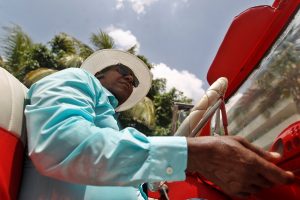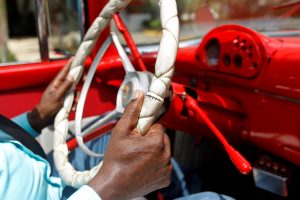
Havana, Aug 10 (EFE).- Tires recycled as brake pads, radiators made of pipes and engine gaskets sealed with the use of a pressure cooker are common in Cuba, where every motorist must also be a mechanic amid a shortage of new vehicles, gasoline and spare parts.
“Here we invent a lot,” Ramon Mongui, 52, quipped as he told EFE the story of the red and white 1956 Ford Fairlane Sunliner he uses to ferry tourists around Havana for $30 an hour, about as much as the typical Cuban worker makes in a month.
When Ramon’s car was leaking oil and he failed to find a replacement for the faulty gasket, he found a solution in his kitchen.
“My wife told me, ‘I’m making you some delicious beans.’ When I opened the pressure cooker – an old Russian pressure cooker – I noticed the gasket was similar. I took it, we tested the pressure and it worked. Four years later the car keeps running,” he said.
With roughly 500,000 automobiles and more than 11 million inhabitants, Cuba has only 42 vehicles per 1,000 residents, compared with 600 per 1,000 in Spain and more than 700 cars for every 1,000 people in the United States, according to data from 2015.

The main reason is government policy.
Until 2011 it was illegal to buy a new car. That prohibition was dropped in 2013, but the purchase of a new vehicle is taxed at 800 percent, resulting in an effective price of $80,000 for a fairly basic ride.
Absurd as it seems, there is a logical explanation, according to Diego Llorente, a Spanish financial professional living in Cuba.
“Cars and gas are imported in hard currency, but are sold here in the local convertible currency (CUC) that lacks international value. Cuba has insufficient hard currency, which forces the country to limit imports, especially of such large and important devices,” Llorente told EFE.
Ramon Mongui worked hard to save up the $500 he paid for his Ford in 1992.
“Now they offer me more than $50,000, but I’m not selling. My younger son will take it over from me,” he said.
